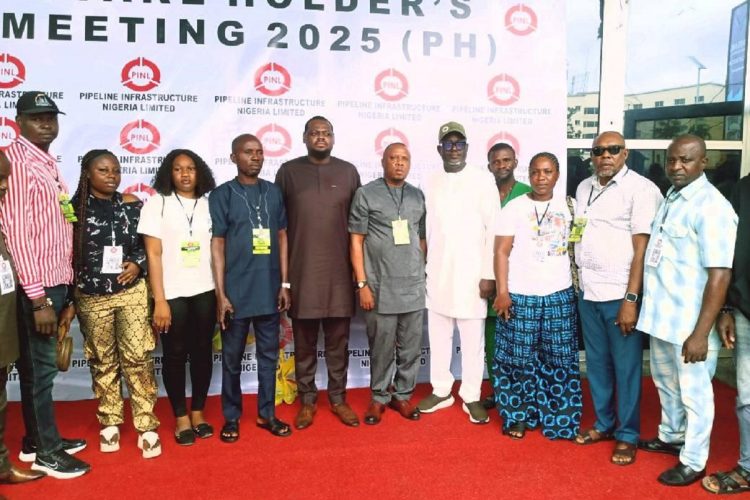
SMW 2017: PIND to Host Panel session on How Government Institutions in the Niger Delta Can Leverage Tech for Citizen Engagement
February 16, 2017December 2016 – January 2017 Niger Delta Conflict Tracker
March 6, 2017It is widely acknowledged that, countries do better when the economy is diversified and the people are not over reliant on natural products for their export earnings. Nigeria and the Niger Delta know and feel this reality acutely as we struggle through low oil prices and reduced levels of crude oil production.
Nigeria’s oil rich delta, is the third largest delta in the world. Located in southern Nigeria, the Niger Delta has a population of over 45 million across 9 states. Since 1975, the region has accounted for more than 75% of Nigeria’s export earnings, but this has not translated to meaningful development of the Niger Delta region. More than any other region in Nigeria, ours is a testament to the devastating effect of the Dutch Disease; not only have we not known peace, but our environment is severely polluted and economic activity outside the oil and gas sector is low — 60% of the population is under 30 years old, with high unemployment, limited regional integration and a terrain difficult to navigate.
This is why seventeen years after the Niger Delta Development Commission (NDDC) was created, N1.4 trillion naira spent and an estimated 3,424 projects later; the NDDC is determined to focus on what Prof Klaus Schwab, described as the Fourth Industrial Revolution — the technological boom.
Information and communication technology provides a broad base from which the Niger Delta can tackle education, transportation, healthcare, social services, agriculture, environment and disaster management, financial inclusion, youth and unemployment, governance and security and we must secure this base for the region.
It is in preparation to participate productively in the global knowledge and technology driven economy that the NDDC has invested immense resources on health and education over the years. No less than 1,411 students have received scholarships since 2010 of which 1,066 were supported in M.Sc and 345 in Ph.D programmes and in health over the years our programmes have extended over 1.2 million documented patients treated, 3500 communities visited and 6,000 referral cases managed.
These investments are already yielding fruit with our postgraduate scholars earning distinctions and prizes across the world. Imagine being able to create the enabling environment for them to return and contribute their skills to the development of the Niger Delta.
Since November 2016, the NDDC has been involved in planning how best to leverage on ICT to build human capacity and fast track social and economic development in the region. Our first task was to actively seek and engage the key stakeholders and partners to collaborate with and in so doing act as the integrator for all plans to develop the Niger Delta. By working in partnership with international donor funded organisations such as the World Bank (Nigeria), Foundation for Partnership Initiatives in the Niger Delta (PIND), Facility for Oil Sector Transparency (FOSTER), and Market Development for the Niger Delta Programme (MADE) we want to create opportunities to amplify the impact of our collective work in the area.
The next step is to find and work with credible partners to switch on the Niger Delta with broadband capacity because amongst other things, the internet is a great enabler of innovation and creativity, capable of providing citizens with options for communicating, organising, working, learning, accessing and sharing information. The opportunities are staggering. Internet usage in Nigeria hovers between 92 and 91 million with the highest usage concentrated in Lagos with 12 million users, while Bayelsa, in the Niger Delta is one of the five states with the lowest Internet usage in Nigeria. If we can connect and integrate the Niger Delta via Internet, it eases the pressure on our roads and allows our younger generation and entrepreneurs to innovate.
The logical progression from the virtual integration of the Niger Delta would be to set up innovation hubs which provide the opportunity to teach coding and other uses of technology as well as provide shared spaces where entrepreneurs can come together and share the costs of operations. This is a model that has worked and is working in many parts of the world including India and close to home, Abuja and Lagos.
Another opportunity for ICT is with managing the environment — climate change mitigation and adaptation; managing biodiversity loss, water and soil pollution are all areas where ICT could be a game changer for the Niger Delta. Already, the clean-up of Ogoni land, which when completed will be the largest oil spill cleanup exercise in the world is providing women of the Niger Delta with learning and earning opportunities. As a member of the 13-member governing council, I will do my best, alongside Honourable Minister for Environment (and UN Deputy Secretary General Designate) Amina J. Mohammed and other members to ensure that the people of the Niger Delta benefit from transfer of technological knowledge and know-how.
I know ICT provides immense opportunities for the Niger Delta to enter the knowledge economy and while there are many who have come before me and many who will come after me to lead the NDDC, if the current Board and Management of the NDDC can pull off our ICT related plans for the Niger Delta, we would have moved a few steps closer to freeing the region from the debilitating reliance on our natural resources.
Nsima Ekere is the Managing Director and Chief Executive Officer of the Niger Delta Development Commission, NDDC









